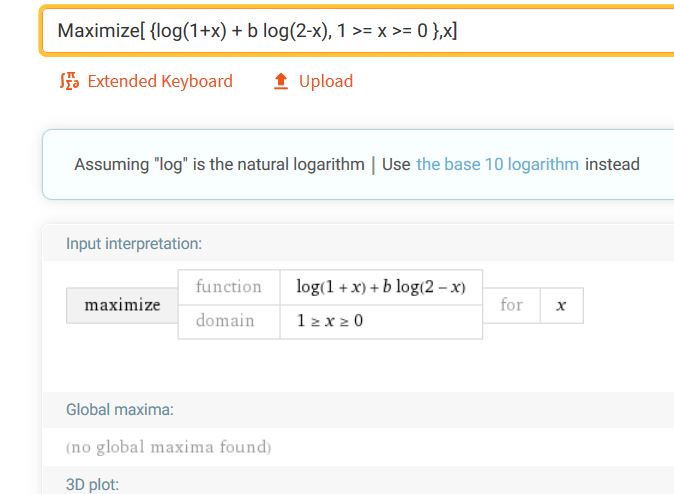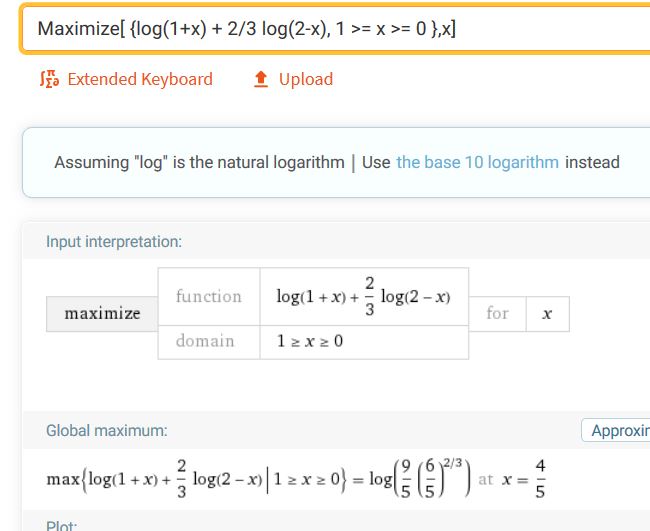Hi, Maybe a very basic syntax question... I tried to check functionality with text book example:
Maximize[ {log(1+x) + b log(2-x), 1 >= x >= 0 },x]
but it fails to find the analytical solution x = 2-b / 1+b (even if I add the explicit domain for b :
Maximize[ {log(1+x) + b log(2-x), 1 >= x >= 0 && 1/2<=b<=2 },x] )
Do I miss something ? 
If I choose a real value for b, it works. 